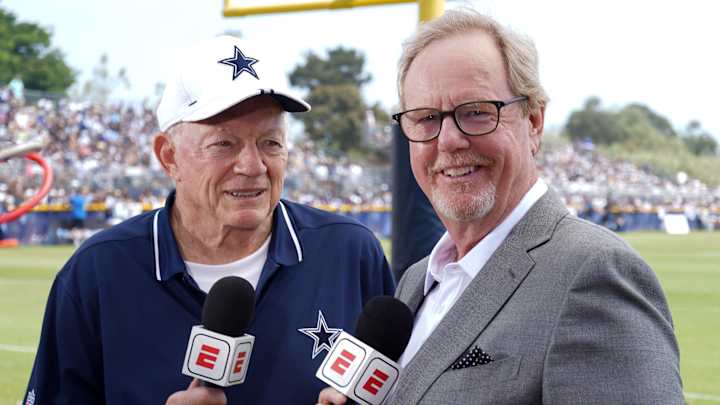The intricate dance between sports media and professional leagues often defines narrative arcs for millions of fans, yet sometimes, the coverage itself becomes the story, particularly when a prominent figure challenges the status quo. Such is the case with ESPN, a leading sports network, whose consistent and arguably disproportionate focus on the Dallas Cowboys has drawn sharp criticism from within its own ranks, sparking a wider debate on journalistic priorities and audience engagement.
For many sports analysts and fans alike, the Dallas Cowboys represent a unique phenomenon in the National Football League. Despite a prolonged championship drought stretching nearly three decades, the franchise continues to command an unparalleled level of media attention, especially during the quiet stretches of the NFL offseason. This enduring fascination is often attributed to the team’s massive fan base and their consistent ability to generate significant television ratings, which, for networks, translates directly into revenue.
A significant part of this sustained Dallas Cowboys narrative revolves around their outspoken owner and general manager, Jerry Jones. Known for his candid and often provocative remarks, Jones frequently engages with the media, providing ample soundbites that often dominate sports headlines. His interviews, particularly those involving contract negotiations or team strategy, are meticulously dissected across various platforms, further cementing the Cowboys’ omnipresence in daily sports discussions.
However, this relentless media spotlight on the Dallas Cowboys recently faced a pointed rebuke from long-time ESPN personality Michael Wilbon. During a segment on his show, Wilbon did not mince words, directly challenging his employer’s editorial strategy regarding the team. His critique centered on the perceived futility of analyzing Jerry Jones’s often meandering pronouncements, labeling the exercise a “damn waste of time” given the owner’s penchant for self-promotion.
Wilbon’s candid assessment highlighted a sentiment shared by many sports broadcasting observers: that the constant amplification of Jerry Jones’s comments contributes little substantive insight into the Dallas Cowboys’ actual competitive standing. He powerfully articulated that the team’s consistent failure to reach the “big action late” in the playoffs renders much of the intense media scrutiny irrelevant to their on-field performance, emphasizing a disconnect between coverage volume and actual team relevance.
The veteran sports media figure further argued that the Cowboys’ consistent absence from championship contention, despite their perennial media visibility, underscores a critical flaw in the network’s approach. He pointed out the irony of treating a team that hasn’t won a significant title in 29 years with the same reverence and airtime typically reserved for reigning champions. This dynamic raises questions about the balance between engaging content and objective journalistic analysis within sports broadcasting.
Ultimately, the core of Wilbon’s argument points to the undeniable influence of ratings. Despite the Dallas Cowboys’ lack of recent on-field success, their games and related discussions continue to deliver substantial viewership figures. This commercial imperative often dictates content strategy, creating a cycle where high ratings reinforce the network’s commitment to covering the team, irrespective of their sporting achievements. This complex interplay between audience demand and editorial decisions remains a constant tension within the competitive landscape of sports media.






Leave a Reply